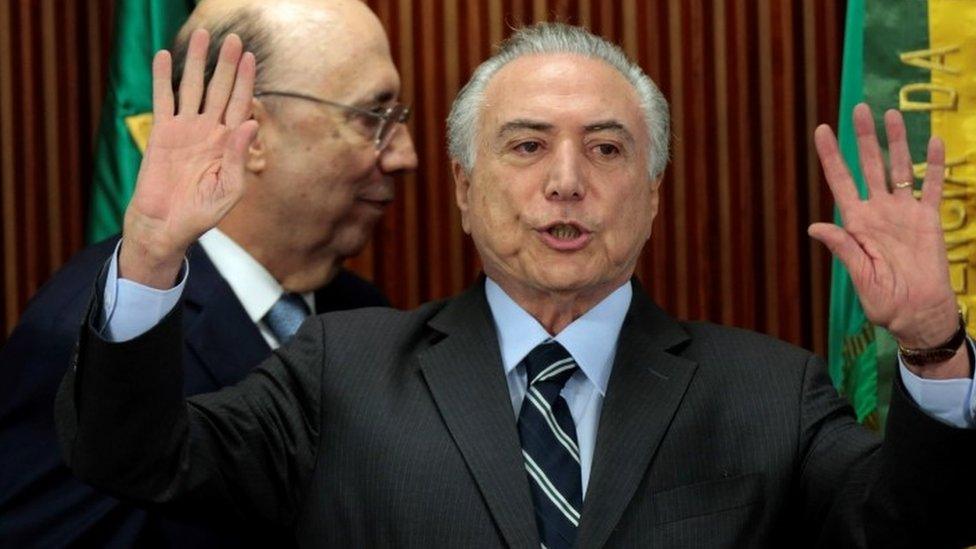Brazil: Troubled Congress speaker Eduardo Cunha resigns
- Published
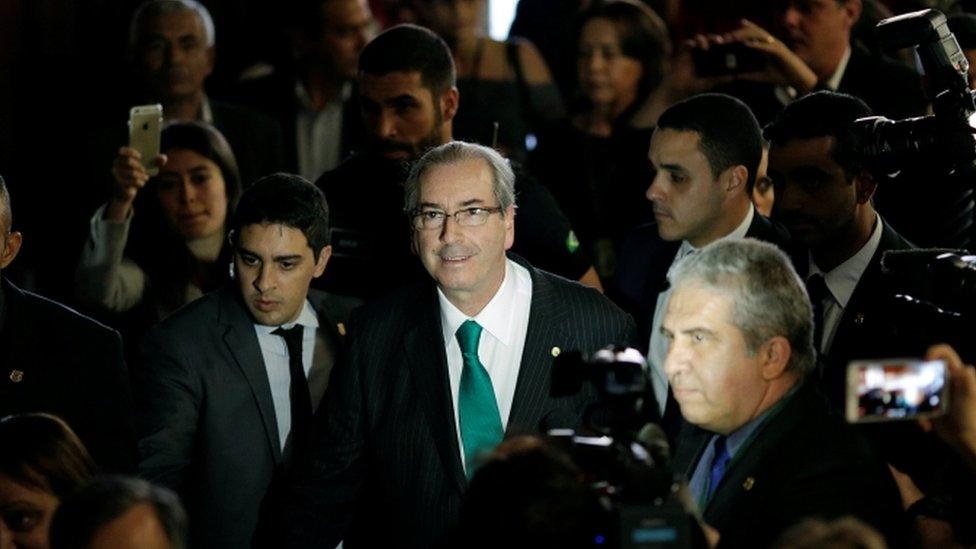
Mr Cunha's suspension from the post of speaker in May has led to a gridlock in Congress
The controversial Brazilian politician who led the impeachment process against President Dilma Rousseff, Eduardo Cunha, has resigned from his post as speaker of the lower house of Congress.
In a tearful news conference, Mr Cunha said he was paying a high price for starting the process.
He was suspended from his post shortly after Congress voted to open an impeachment trial against Ms Rousseff.
He has been accused of taking bribes from the state oil company Petrobras.
Prosecutors say he diverted millions of dollars to his personal accounts in Switzerland.
He denied holding any bank account abroad and is now facing the prospect of being expelled from the Chamber of Deputies for lying to Congress.
In a recent interview with weekly magazine Carta Capital, Ms Rousseff described Mr Cunha as Brazil's most powerful man.
He was suspended in May from the post of speaker of the lower house of Congress by the Supreme Court.
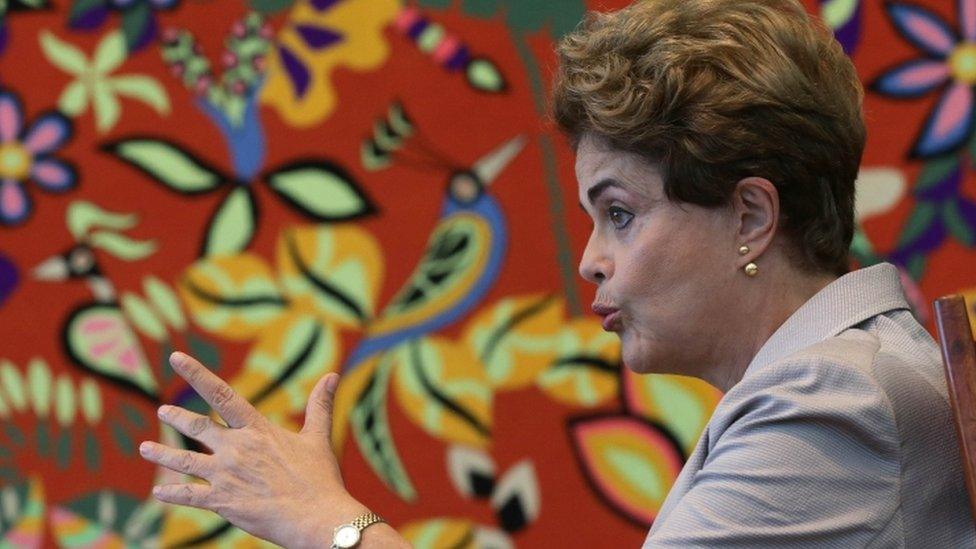
Ms Rousseff accused says Mr Cunha controls power in the interim government of Michel Temer
The ruling has led to weeks of deadlock in Congress, as his supporters boycotted the interim speaker, Waldir Maranhao.
They have blocked crucial votes, virtually paralysing the new government of interim President Michel Temer.
"Only my resignation can put an end to this endless instability. The lower house cannot bear to wait forever," he told journalists.
"I am paying a high price for having started the impeachment proceedings."
A congressional committee recommended last month that Mr Cunha is expelled from the lower house and banned from politics for eight years.
A vote is expected to be held next month. If he is expelled from the legislature, he will lose his current immunity from prosecution.
His opponents say the resignation as speaker may be part of a wider agreement to save his political future.
- Published23 June 2016
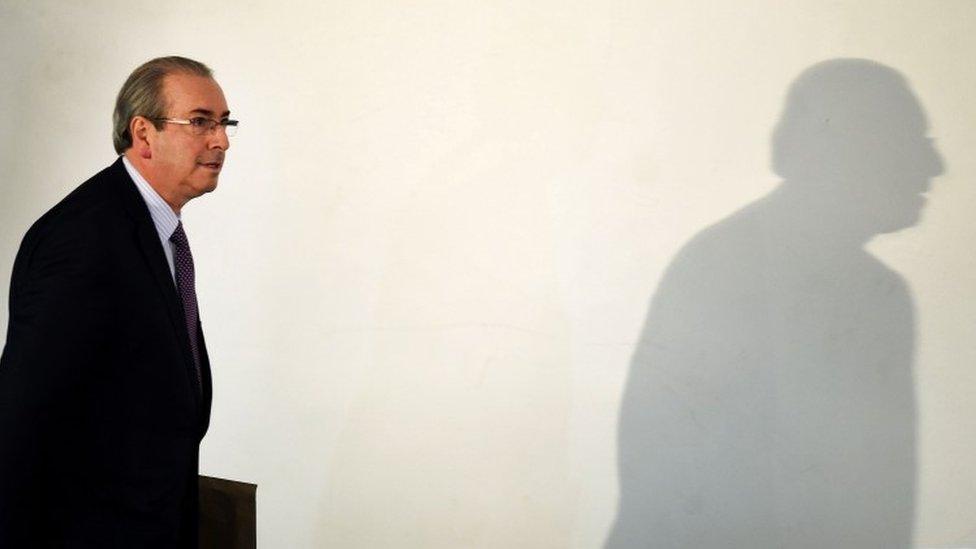
- Published15 June 2016
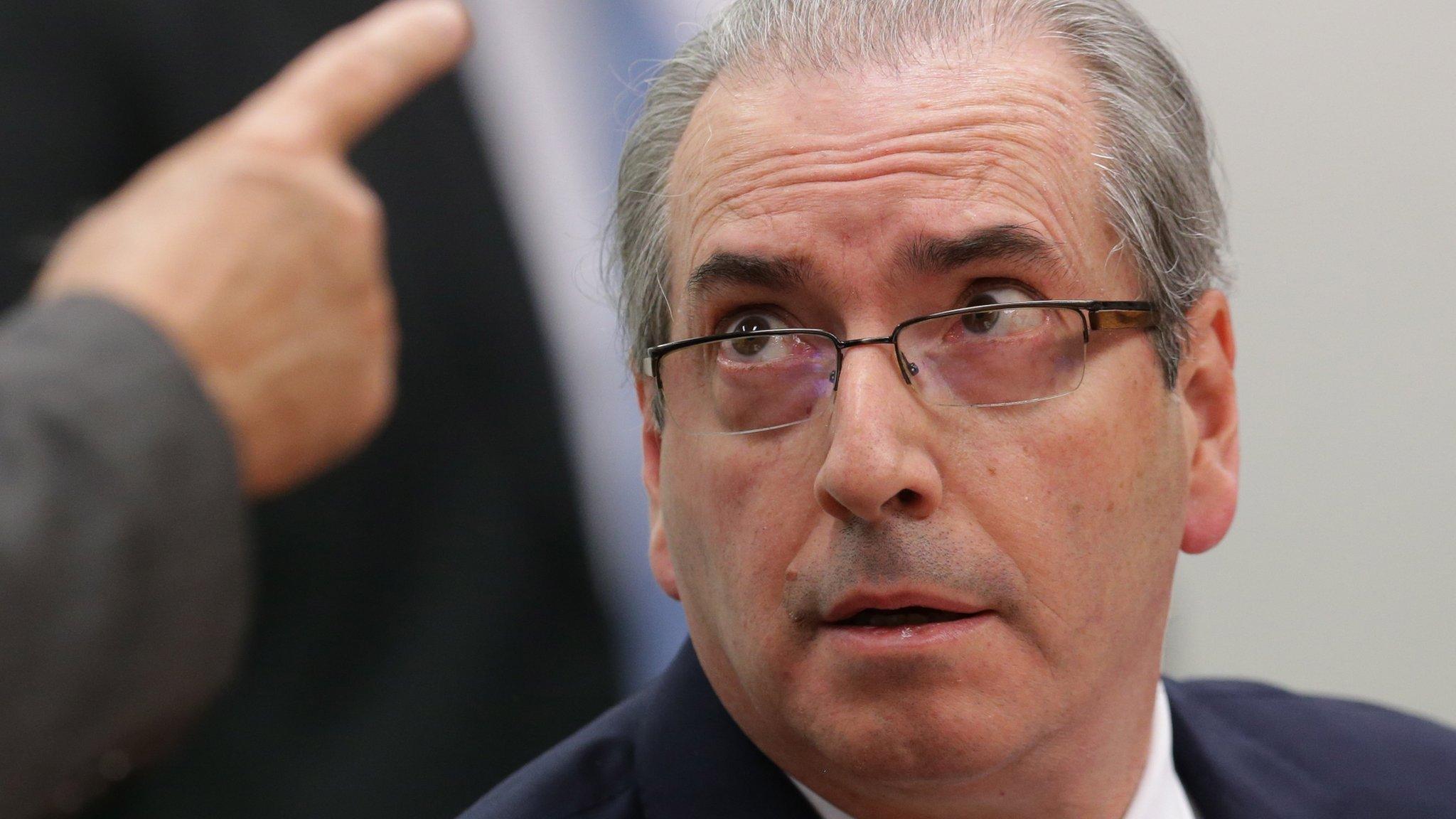
- Published16 June 2016
